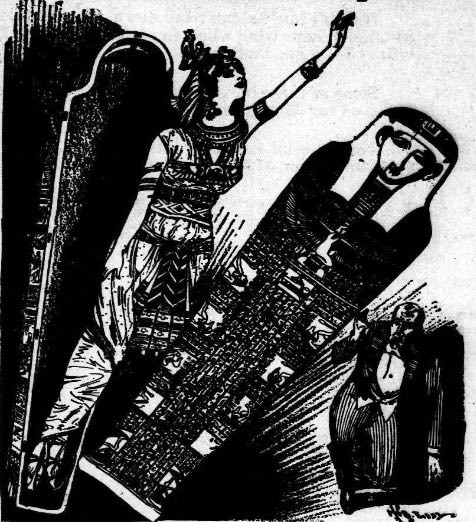
No different from the crap you read in your Facebook feed, the ancient Egyptians also wrote about the mundane, day to day stuff, too.

Egyptians of Old Had Troubles, As Ancient Papyrus Reveals
Hekanakht’s Domestic Life Held Annoyances, but He Thought Certain Women Should be Well Treated
Like a comedian at a funeral, there has just drifted into the Egyptian collection of the Metropolitan Museum a valuable as well as humorous touch in a few yellow sheets of papyrus recently unearthed at Thebes and exhibited yesterday for the first time with other treasure in the third Egyptian room.
The impressiveness of the Egyptian collection, as a general thing, leaves the visitor with the idea that the ancient Egyptian was a stern being, whose life was devoid of any adventure save contemplating the undertaker. The interpretations which are beside these ancient writings reveal the fact that browbeating landlords, suffering tenants and domestic difficulties were the real issues of the day.
These letters, written by Helanakht, farmer, priest and gay old bird, were epistles which were largely directed to his family and his tenants while he was away on business. In answer to Mersu, a tenant who wrote that he feared the dikes might burst and flood the land, this ancient landlord replied:
“Woe to all my people with thee. Guard the produce of my grain — guard everything of mine, for I shall hold thee responsible for it, and if my land floods when Sneferu cultivates with thee — woe to thou and Sihatho.”
In a later letter he gives instructions as follows: “You must give the victuals to my people only while they are doing work. Mind this! Make the most of all my land; strive to the uttermost; dig the ground with your noses in the work. See, if you are industrious, one will praise God or you. Lucky that I can support you.”
Not content with all the accrued troubles of his estates, Hekanakht, who was evidently a widower, disrupted the peace of the household by taking unto himself a concubine. In a bitter letter written when the trouble seemed at its height he says: “He who shall interfere in any way with my concubine, he is against me and I am against him. Behold this is my concubine, and it is well known that a man’s concubine ought to be treated well.”
In the same room with these manuscripts are the objects yielded by the expedition’s excavations at Lish and Thebes during the last two seasons. Included among them is an interesting collection of beads and scarabs.
Source: The Evening World (New York City, NY newspaper). December 22, 1922.

